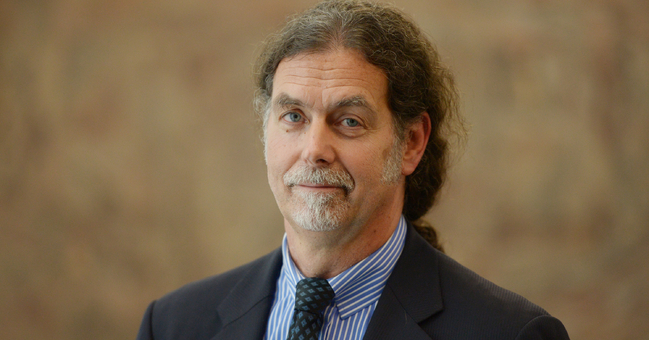Ebola
"The last mile is the most difficult"
The German government’s Ebola Commissioner hopes that the epidemic will continue to abate. There is a real chance that by the middle of the year we could be seeing no new infections, said Lindner. At the same time he warned, "We cannot know how the epidemic will develop." We must not let up in the battle against Ebola.
 Walter Lindner, the German government's Ebola Commissioner
Source: picture-alliance/dpa/Rainer Jensen
Walter Lindner, the German government's Ebola Commissioner
Source: picture-alliance/dpa/Rainer Jensen
"The last mile is always the most difficult," declared Walter Lindner, the German government’s Ebola Commissioner, at an information meeting staged by the government. Although the number of recorded new infections is dropping, the trend is not yet constant.
By mid-February about 23,200 people had become infected according to WHO figures. Around 9,400 of those infected died.
Declining numbers of new infections
At the end of January the number of new infections in the three West African states Sierra Leone, Guinea and Liberia dropped below 100 a week for the first time. The figures then rose again, to as many as 140 cases a week. In Guinea in particular new infections were seen. At present a positive trend can be noted. Although, the number of new infections is dropping, "We cannot know how the epidemic will develop," said Walter Lindner in Berlin. This is why we must not let up in our efforts.
According to Marylyn Addo, who is in charge of clinical trials being conducted with a vaccination candidate at the University Hospital in Hamburg Eppendorf, there are grounds for hope that an Ebola vaccine will soon be available.
At a recent summit in Conakry, the capital of Guinea, the Presidents of the three countries worst hit by Ebola, Sierra Leone, Guinea and Liberia, announced their aim of vanquishing Ebola by mid-April. They also urged the international community to provide the assistance they need.
Taking into account customs and local culture in the fight against Ebola
The Ebola Commissioner Walter Lindner explained that on average every infected person comes into contact with 20 people. Each of these contact persons must be identified and isolated. The coordination of volunteers and cooperation with local authorities that this entails is working very well, he said.
German Red Cross President Rudolf Seiters, who also attended the meeting at the Federal Press Office, stressed that it is particularly important to involve village communities in the battle against Ebola. Cultural sensitivities, including traditional burial rites, must also be taken into account.
Early warnings ignored
With a view to the lessons to be learned from the Ebola epidemic, Walter Lindner admitted that the international community had not been adequately prepared and that it had responded too late. "We had no experience of an outbreak on this scale. Early warnings were not heeded." But, once assistance was launched it served its purpose swiftly, he added.
"The assistance really made all the difference in fighting the epidemic," said German Red Cross President Rudolf Seiters. With Bundeswehr support, the German Red Cross opened a treatment unit in the Liberian capital, Monrovia, which the World Health Organization had put in place.
The concept of the treatment unit, which was established in response to an initiative of Liberia’s Ministry of Health and Social Welfare, is an example to follow. About 200 local doctors, technicians, nursing staff and hygiene officers have been trained there to deal with Ebola. "To date this unit in Monrovia has seen more than 170 patients; 42 of them were admitted as in-patients," reported Rudolf Seiters.
Since the number of new infections is now declining, the centre is now also being used for the treatment of other serious diseases apart from Ebola, including malaria and meningitis.
Ebola orphans often cast out
Joachim Gardemann, who headed the Ebola treatment centre in in Kenema in Sierra Leone for five weeks on behalf of the German Red Cross reported that survivors are being actively recruited for awareness and education work and as nursing staff, especially for children who have contracted Ebola.
The treatment centres have a survival rate of 65 per cent, while the rate in the villages is only 35 per cent. The realisation that this is the case has encouraged people to trust medical helpers. There are still major difficulties in finding homes for Ebola orphans, since family and village communities are often no longer willing to take in these children because they fear that they too will become infected. UNICEF and the charity SOS Kinderdörfer are now taking care of these children.
Since the beginning of October 2014, the German Red Cross has sent a total of 71 volunteers to help in Liberia and Sierra Leone.
Ebola still an important issue
The European Union is organising a major Ebola conference in Brussels at the start of March. The topics on the agenda will include rebuilding the economy and the health systems in the African states affected, as well as the fate of Ebola orphans and the possible long-term health consequences of the infection.
Chancellor Angela Merkel will also be using Germany’s G7 Presidency this year to strengthen international crisis management in the health sector. With Norwegian Prime Minister Erna Solberg and Ghana’s President, John Dramani Mahama, she has proposed a package of measures to United Nations Secretary-General Ban Ki-moon. Teams of specialists that can be deployed at short notice are an important factor, along with strengthening health systems and research into vaccines to provide protection against rare dangerous infections diseases.
Wednesday, 25 February 2015

